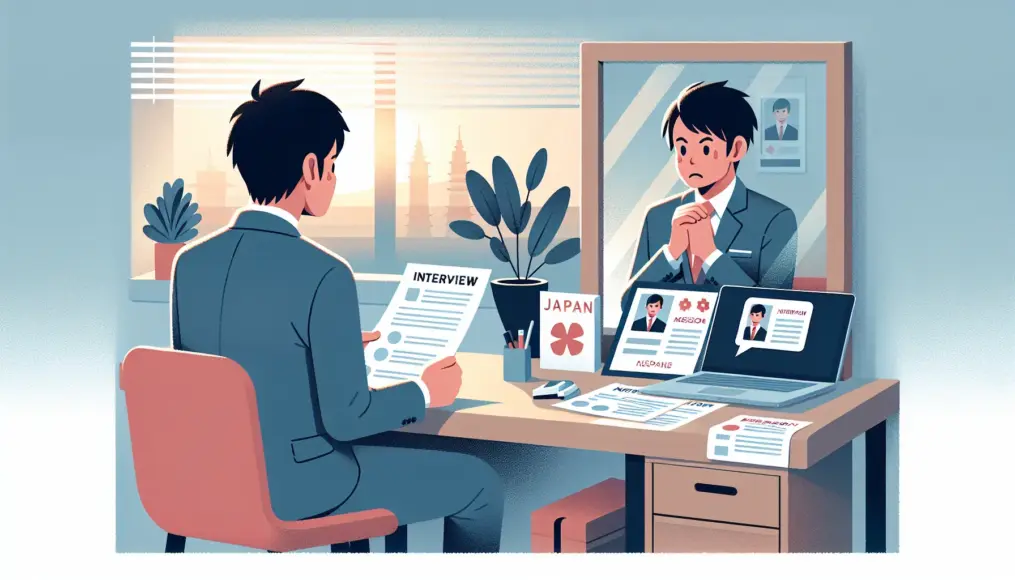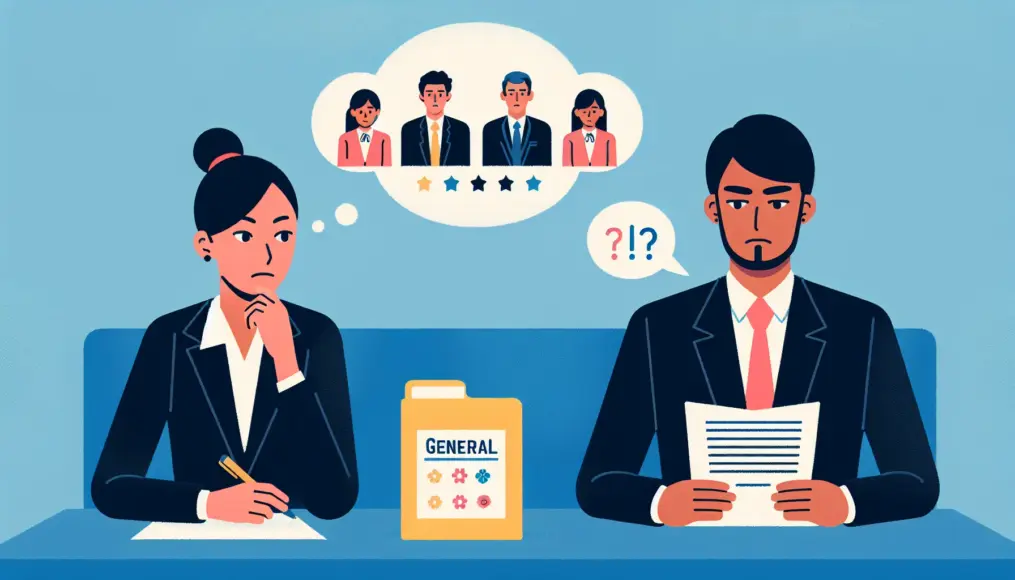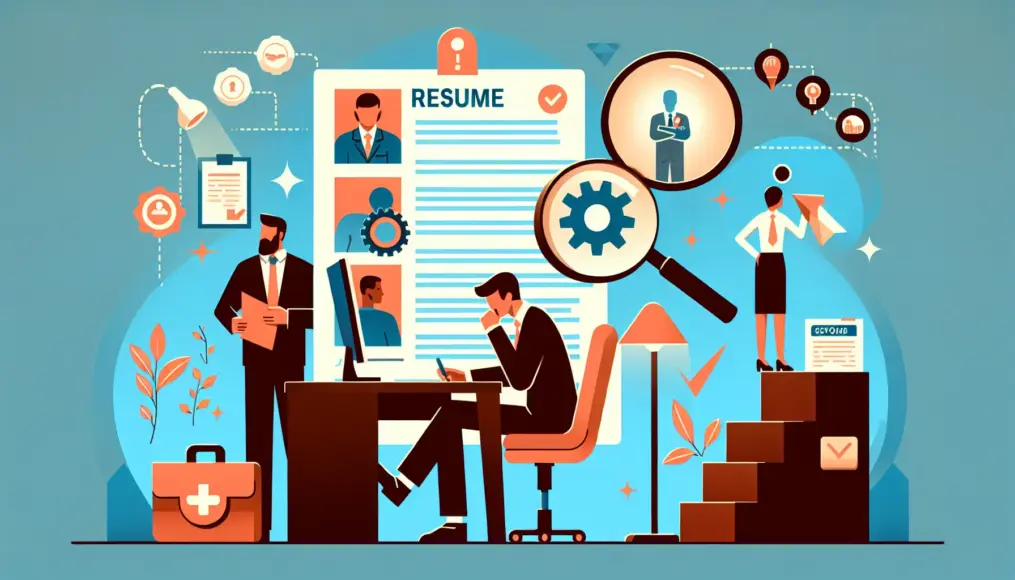If you’re contemplating a career change, how you answer questions during an interview can significantly impact your chances of success. It’s crucial to respond thoughtfully, especially to questions designed to gauge your personality and abilities. In this article, we’ll provide examples of common interview questions and share techniques to help you make a positive impression. With these tips, you’ll be able to approach your next interview with confidence.
It’s often said that preparation accounts for 90% of success in interviews. By having well-thought-out answers ready, you can showcase your strengths to the fullest. Particularly, demonstrating your understanding of the company through insightful questions will undoubtedly leave a favorable impression on the interviewer. Let’s dive into effective interview strategies together!
- Specific answers to frequently asked interview questions
- Techniques for making a great impression on interviewers
- Insights on asking questions and post-interview considerations
Common Interview Questions You Should Prepare For
When it comes to job interviews, there are certain questions that interviewers almost always ask. These questions are crucial for understanding the candidate’s personality and skills, so it’s essential to be well-prepared. Particularly, “Tell me about yourself” and “What motivates you to apply?” are frequently asked at the beginning of an interview, and how you respond to these can significantly impact the interviewer’s impression of you. Let’s take a closer look at the basics of self-introduction and how to effectively convey your motivation for applying.
The Basics of Self-Introduction
Self-introduction is vital for making a strong first impression during an interview. To communicate your background and strengths effectively within a limited time, it’s important to be concise. Start by briefly stating your name and professional background, then highlight your strengths or unique skills using specific examples. This approach will leave a lasting impression on the interviewer.
- Keep your self-introduction concise
- Use specific examples to showcase your strengths and skills
- Think of ways to enhance your first impression
How to Convey Your Motivation for Applying
When sharing your motivation for applying, it’s crucial to clearly explain why you chose that particular company and how you believe you can contribute. By expressing your alignment with the company’s vision and culture, you can effectively convey your enthusiasm as a candidate. Additionally, detailing specific skills and experiences that you can leverage to contribute to the role will make your case even more compelling.
- Explain why you resonate with the company’s vision and culture
- Clearly highlight your skills and experiences
- Convey your enthusiasm to create a positive impression
Techniques to Leave a Positive Impression on Interviewers
When it comes to job interviews, it’s not just about answering questions; making a good impression on the interviewer is crucial. To achieve this, you need to be mindful of your language and expression. Using positive phrasing and sharing specific stories can significantly enhance your appeal. In this section, we’ll explore techniques to help you create a favorable impression during your interview.
Use Positive Language
The language you choose can greatly influence the interviewer’s perception of you. For instance, when discussing your experiences and skills, it’s important to avoid negative expressions and instead highlight your achievements. Even when reflecting on past failures, focusing on your growth and what you learned can showcase your positive attitude.
- Positive language enhances your impression
- Frame failures as opportunities for growth
- Highlight your achievements to demonstrate confidence
Provide Specific Examples
Incorporating specific anecdotes into your responses is key to making a convincing impression on the interviewer. Rather than simply saying, “I work well in teams,” you should say something like, “In my previous job, as a member of a project team, we successfully met our deadlines.” This concrete example builds trust and credibility. By using specific instances, your skills and experiences become much clearer.
To effectively showcase your experience during a job interview, providing answers that include specific examples is essential. If you found this article helpful, you might also be interested in our detailed guide on reverse questioning techniques to stand out at the end of an interview. Check out our article on “Stand Out at the End of the Interview! Examples of Questions and Their Intent” for practical methods to leave a lasting impression.
- Using specific examples increases your persuasiveness
- Share examples that demonstrate your achievements
- Clearly communicating your abilities is vital
How to Stand Out with Thoughtful Questions
In job interviews, it’s common to have a chance to ask questions at the end. This time is a golden opportunity to showcase your interest and enthusiasm to the interviewer. By asking insightful questions, you can demonstrate your understanding of the company and set yourself apart from other candidates. In this section, we’ll delve into effective questions to ask and the importance of researching the company beforehand.
Examples of Effective Questions
When it comes to asking questions, it’s crucial to prepare specific inquiries related to the company or the role. For instance, asking, “Could you share your company’s growth strategy for the future?” or “What key skills are essential for success in this position?” can be impactful. By posing such questions, you convey genuine interest in the company, leaving a positive impression on the interviewer.
- Questions about the company’s growth strategy
- Inquiring about essential skills for the position
- Demonstrating your interest in the company
The Importance of Company Research
To ask effective questions, thorough research on the company is essential. Understanding the company’s vision, recent news, and industry trends allows you to pose more specific and meaningful questions. Conducting this research not only provides you with more material to demonstrate your fit for the company but also enhances your persuasiveness with the interviewer.
- Familiarizing yourself with the company’s vision and news
- Gathering information to prepare specific questions
- Increasing your persuasiveness with the interviewer
Key Considerations at the End of an Interview
The conclusion of a job interview is a crucial moment that can significantly influence the impression you leave. By conveying the right messages at this point, you can ensure a positive impact. Particularly, expressing gratitude and inquiring about the next steps not only demonstrates good etiquette as a candidate but also serves as a valuable opportunity to showcase your seriousness to the interviewer. In this section, we’ll explore important points to keep in mind at the end of your interview.
Show Appreciation
It’s essential to express your gratitude to the interviewer after the interview wraps up. A simple statement like, “Thank you for taking the time to meet with me today,” can highlight your politeness. These small gestures can greatly enhance your overall impression.
- Express gratitude to the interviewer
- Showcase your politeness
- Small gestures can improve your impression
Confirm the Next Steps
Another important aspect is to ask about the next steps in the hiring process at the end of the interview. By saying something like, “Could you please share what the next steps in the selection process will be?” you can gain insights into the upcoming timeline and demonstrate your interest in the position. Knowing the selection schedule also helps you mentally prepare for what’s next.
After understanding these key points for the end of a job interview, if you’re looking for more general tips for interviews, check out this article: “Techniques for Effective Reverse Questions to Stand Out in a Final Interview”. It provides specific techniques to impress the interviewer and effectively promote yourself through reverse questions. Be sure to check it out and prepare thoroughly for your interviews!
- Confirm the next steps in the hiring process
- Enhance your impression by showing interest
- Understand the timeline to mentally prepare
Conclusion
In a job interview for a career change, how you respond to questions is crucial. By incorporating positive phrasing and specific anecdotes when answering fundamental questions like self-introduction and motivations for applying, you can leave a strong impression on your interviewer. Additionally, showing your interest in the company through thoughtful questions and expressing gratitude at the end of the interview can significantly contribute to your success.
Overall, being well-prepared and approaching the interview with concrete examples and genuine enthusiasm are key factors that lead to a successful job interview. Keep these points in mind as you gear up for your next interview.
- Include specific stories in your self-introduction and motivations for applying
- Use follow-up questions to demonstrate your interest in the company
- Express your gratitude at the end of the interview
A job interview is a fantastic opportunity to showcase yourself, so make sure to prepare thoroughly. Use this article as a guide, and I wish you the best of luck in your endeavors. If you have any comments or questions, feel free to reach out!



Comment